Multiculturalism, Animal Rights and Inclusive Citizenship

Interview by Richard Marshall

'What we need is social science evidence. Is there evidence that adopting multiculturalism policies makes countries less likely to address unemployment or housing? Is there evidence that adopting multiculturalism policies leads to greater inter-group distrust or polarization?'
'Many people assume that multiculturalism is essentially an attempt to opt out of such an ethics of membership: to disavow any sense of allegiance to the larger society. But as Taylor argued in his famous essay, multiculturalism is not a disavowal of membership, but rather an avowal that there are many different ways of being a member, many different ways of belonging.'
'The linchpin of human exceptionalism is political status, not moral status. But of course not all humans are included in the political circle. The various justifications given to exclude animals from the demos – for example, that they lack reason or language or moral self-regulation – have also been invoked to exclude many human groups at different times, including children, people with cognitive disabilities, women, the poor, and various racialized groups.'
'On many if not most issues, advocates for animal rights and Indigenous rights are likely to line up on the same side, against the instrumentalist, unminded and property-based view of animals that defines Western culture and Western capitalism. Of course, there are areas of dispute, particularly around certain traditional hunting and fishing practices. As I said, this is a complex, multi-layered dispute, partly legal, partly political, partly scientific, partly cultural.'

Will Kymlicka is interested in democracy and diversity, in particular models of citizenship and social justice within multicultural societies, and animal rights. Here he discusses multiculturalism, evidence that it's growing, whether it's been a success, why civic integration policies don't render multiculturalism obsolete, its relation to the welfare state, new ways of thining about nationalism and multiculturalism, animal rights and why its best to set these in a political rather than an ethical setting, understanding human/animal relationships politically, in particular the difference between domesticated and wild animals, cosmozoopolis vs zoopolis, why its not too late to discuss animal sovereignty, inclusive citizenship, issues raised by animal rights and Aboriginal rights in Canada, and the impact of the 6th extinction.
3:16: What made you become a philosopher?
Will Kymlicka: My original career plan was to become a civil servant for the Canadian government. That may seem like an odd ambition, but as a teenager I had read a book on the introduction of public health care in Canada, and was struck by the crucial role that bureaucrats played in that process, designing and implementing these policies, often in the face of bitter resistance from powerful lobbies. I wanted to be part of that fight to build a more just society. So when I went to university, I initially enrolled in politics and economics, to learn how states and markets operate, which were seen as the best qualifications for the federal civil service. But I quickly became frustrated because my first-year politics and economics professors were unwilling to discuss what I thought was the most important question: namely, whether our political and economic structures are fair or just. The question of justice was not part of the curriculum for those courses, and if I did try raise questions of injustice, I often got the reply that this was just a matter of “opinion”, and not something that one could rationally discuss and evaluate. Then I took a philosophy course on theories of justice, carefully parsing a wide range of arguments and theories of fairness, and I knew that I had found my academic home. I wanted to be in a community of people who not only cared about justice, but who believed that one could engage in serious intellectual conversations about what justice requires. And ever since then, Philosophy departments have been my primary affiliation, although I’ve also tried to keep connections with colleagues in politics and public policy.
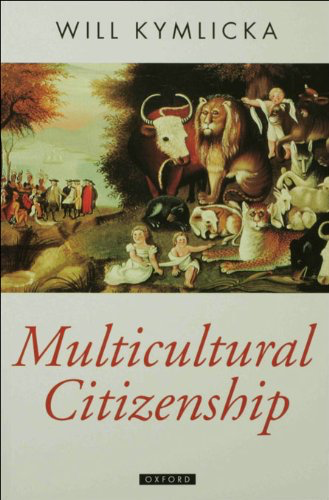
3:16: One area you’ve been working in is that of multiculturalism. A feature of the current situation regarding multiculturalism is that there is much talk of a retreat from it whilst it nevertheless being still a live option for western Democracies.
WK: The public and academic debate on multiculturalism has gone through so many ups and downs over my 35 year career that it’s difficult now to remember what the original debate was about. But I think it’s worth distinguishing the more enduring philosophical debates from some of the more ephemeral policy debates. The philosophical literature on multiculturalism emerged in the late 1980s as a debate about the nature of (liberal-democratic) citizenship. The orthodox view amongst liberal philosophers was that citizenship was – by definition – a unitary and homogenous status, incompatible with group differentiation. Citizenship should be “difference-blind”. Several of us wanted to challenge that orthodoxy, and argue that citizenship can and should be differentiated: different groups can have different relationships to the state. This was an existential issue for Canada in the 1980s, when the country almost fell apart because of the inability to come to an agreement about the “special status” of Quebec and of Indigenous peoples. It’s worth noting that in this initial debate, the main test cases for differentiated citizenship were not immigrants, but national minorities (such as the Quebecois, or Scots, or Catalans) and Indigenous peoples (like the Mohawks or Sami or Maori). We can see this in Charles Taylor’s famous essay on Multiculturalism, which is essentially a plea to English-Canadians to accept what he called “deep diversity” – that is, to accept that the Quebecois will have a different relationship to Canada than Indigenous peoples, and both will have a different relationship to Canada than immigrant groups. Taylor’s theory of multiculturalism – and my own work – is fundamentally a defense of this idea of differentiated citizenship.
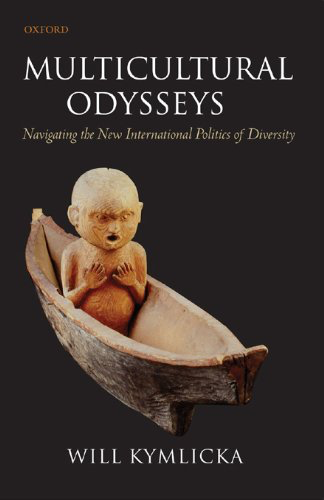
Viewed this way, it should be clear that we are still very much in an age of multiculturalism. Of these three cases – national minorities, Indigenous peoples, and immigrants – few people dispute the need for differentiated citizenship in the first two. On the contrary, there has been a fairly dramatic expansion of the rights of national minorities and Indigenous peoples across the Western democracies over the past 40 years. The case of immigrants is more complicated, and some countries have recently retreated from some of the group-specific policies they had adopted earlier for immigrants, such as the funding of immigrant associations or immigrant advisory bodies. However, even here, the debate is largely about policy effectiveness, not the kind of principled opposition to any deviation from unitary citizenship that Taylor and I were responding to. We live in a world of deep diversity, and Western democracies need to find models of citizenship that respond to that diversity, and that reconcile fundamental values of freedom, equality and democracy with the need for differentiated legal and political statuses. I think most theorists today accept that having a difference-blind unitary conception of citizenship is no guarantee of equality and freedom, and that we need to be open to claims for differentiated citizenship, even if we disagree about whether a particular multicultural policy is “working” or not.
3:16: So you're actually arguing that it isn’t in fact retreating but is persisting and growing stronger don’t you?
WK: As I said, differentiated citizenship for national minorities and Indigenous peoples is definitely growing stronger. Indigenous rights are being strengthened around the world, both within specific countries (like New Zealand and many Latin American countries) and within international law (e.g. the United Nations Declaration on the Rights of Indigenous Peoples). National minorities are also gaining more distinctive powers. (Think about the asymmetric devolution to Scotland and Wales, and the power-sharing agreement in Northern Ireland – all deviations from the idea of a unitary national citizenship). So when people talk about “retreat” from multiculturalism, they are really only talking about the case of immigrants. And even there, the evidence suggests that the retreat is more a matter of rhetoric than substance.
Keith Banting and I developed a “Multiculturalism Policy Index” that tracks the adoption of eight specific multiculturalism policies for immigrant groups in 21 Western democracies at 10-year intervals, from 1980 to 2020 . And across that 40 year period, the average score has consistently gone up. There are one or two high-profile exceptions – such as the striking retreat from multiculturalism in the Netherlands – but these are more than offset by the steady growth in multiculturalism policies across most Western democracies, such as in Finland or Portugal. The media (and many academics) like to focus on the politically charged cases of retreat, but this obscures the more general trends. Politicians today in some countries are less likely to use “the m word” in public debate, particularly in Europe, but there are good reasons of both principle and pragmatism to provide legal recognition and accommodation of difference and this continues to be reflected in decision-making in most contexts.
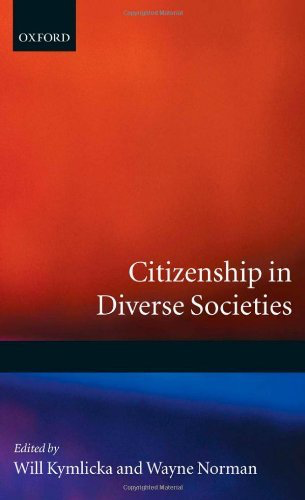
3:16: Is there evidence that multiculturalism has been a success? Some critics argue that it uncritically celebrates diversity without addressing more important issues such as unemployment, radicalization and social isolation. How do you rebut this criticism?
WK: There are two different issues here. One is a concern about displacement or distraction: multiculturalism may provide symbolic recognition but distracts us from addressing deeper material problems around employment and housing. The second is a concern about perverse effects: multiculturalism may reify group boundaries, put up walls between groups, and so contribute to polarization and distrust, even radicalization. The first view implies that multiculturalism is too weak to make any real difference; the second that multiculturalism does make a big difference, but its effects are negative. Both of them are essentially empirical questions, and so what we need is social science evidence. Is there evidence that adopting multiculturalism policies makes countries less likely to address unemployment or housing? Is there evidence that adopting multiculturalism policies leads to greater inter-group distrust or polarization?
When I first confronted these criticisms, I asked my social science colleagues what the evidence showed about the effects of multiculturalism policies, and was surprised to discover that there was virtually no research on these policy effects. This indeed was one reason why Keith and I developed our Multiculturalism Policy Index, to facilitate empirical research on the impact of adopting (or repudiating) these policies. We also recruited some of our colleagues to help test these claims about the alleged negative effects. This has all been a steep learning curve for me, figuring out how social scientists try to test these kinds of claims. It has proven to be much more complicated than I realized! It’s surprisingly difficult to tease out the impact of multiculturalism policies from all the other causes that impact on the social, economic, and political outcomes for particular groups in particular societies.
However, the evidence to date is reasonably encouraging. Countries that adopt multiculturalism policies tend to do better on a wide range of outcomes, such as intergroup attitudes or levels of political participation, than do countries that reject multiculturalism. There’s a lively debate about how much multiculturalism policies per se are responsible for these better outcomes, and even if pro-multicultural countries do better on average, they still fall very far short of justice. So I don’t myself use the language of “success”, insofar as that implies justice has been achieved. But I do think multiculturalism has been beneficial overall, even if we still have a lot of work left to do.
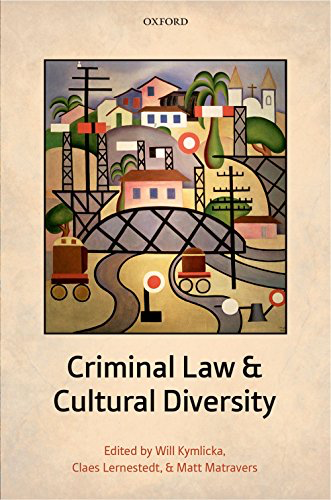
3:16: Why don’t you think civic integration policies have rendered multiculturalism obsolete? You argue for combing the two don’t you?
WK: This goes back to the question of rhetoric versus substance. Many politicians have argued that in relation to immigrant groups we should replace “multiculturalism” policies with “integration” policies. However, this contrast between “multiculturalism” and “integration” makes little sense. If we look at the kinds of immigrant multiculturalism policies adopted in Canada and Australia – the first two countries to adopt official multiculturalism policies for immigrant-origin groups – integration has always been one of the goals. Multiculturalism in relation to immigrant groups is not an alternative to integration, but rather an account of what the fair terms of integration should look like. From a multiculturalist perspective, “integration” should be additive not subtractive – immigrants should not have to hide or renounce their ethnic identities in order to join the nation. And this in turn means that integration should be bi-directional: just as immigrants adapt to their new society, so their host society adapts to the needs and identities of immigrants. The choice is not between multiculturalism or integration, but between (additive, bidirectional) multicultural integration or (subtractive, unilateral) assimilationist integration. This is a real choice, and different Western countries are coming down on different sides of that line.
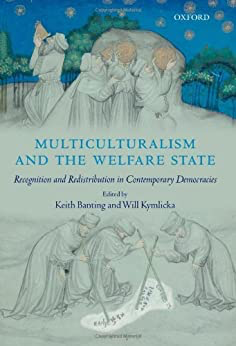
3:16: The arguments against multiculturalism are often tied up with concerns about the welfare state. Some people argue that solidarity is on the decline, and that extending multiculturalism to newcomers further erodes any feelings of shared belonging that may still exist. On this view, we face a choice between a neoliberal multiculturalism that champions mobility and diversity at the price of national solidarity, or a “welfare chauvinism” which champions national solidarity at the price of excluding immigrants. Is this how you think current political landscape looks regarding multiculturalism and welfare stateism at the moment?
WK: I’m hugely interested in these debates about the welfare state. As I noted earlier, even as a teenager, my preoccupation was building a more just society through the welfare state, so I take seriously the concern that multiculturalism might (intentionally or unintentionally) weaken the welfare state. In the philosophical literature, this is sometimes called the “recognition-redistribution” trade-off: pursuing a politics of multicultural recognition is said to weaken the politics of material redistribution. But here again, this is an empirical question, and Keith and I have spent a lot of time studying this question in particular, including publishing two big edited volumes on the topic (Multiculturalism and the Welfare State 2008; The Strains of Commitment: The Political Sources of Solidarity in Diverse Societies, 2017). I can’t summarize all the interesting research results of those two volumes, but let me just state bluntly: there is no recognition-redistribution trade-off! There is no evidence that adopting multiculturalism policies either reduces public support for the welfare state or the actual scale of redistributive social policies.
Having said that, I agree entirely that there is such a thing as “neoliberal multiculturalism” which champions mobility and diversity over national solidarity. This is essentially the corporate version of multiculturalism - the equivalent of corporate versions of environmentalism or gay rights (greenwashing and pinkwashing) – stripped of any real social justice commitments. Slavoj Zizek famously argued that this is the origin of multiculturalism – that multiculturalism entered the world as a handmaiden of global neoliberal capitalism. But that’s demonstrably false: multiculturalism predates neoliberalism, and was championed initially as part of a broader social justice agenda. And so part of my work has been to keep alive this original vision of multiculturalism as part and parcel of a just society, and as a vision of citizenship, not a vision of how best to capitalize on diversity so as to compete in global markets.
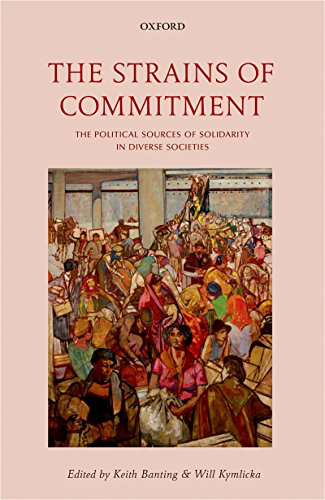
3:16: You argue that we need to look beyond these new forms. Can you sketch your salient ideas here?
WK: The fact that multiculturalism policies have not generally weakened the welfare state suggests that most countries have found a way to reconcile multiculturalism and national solidarity: we might say that they are working out in practice a kind of multicultural nationalism. But this raises a theoretical puzzle. Most theorists of nationalism – such as David Miller – argue that multiculturalism necessarily undermines national solidarity, by weakening a sense of common identity or sense of belonging. Conversely, many theorists of multiculturalism argue that nationalism is inherently antithetical to multiculturalism: that nationalism is inherently prone to exclusion or assimilation of minorities, and so multiculturalism can only thrive in a post-national world. So nationalists think they must be anti-multiculturalism, and multiculturalists think they must be anti-nationalist. Yet in practice, in at least some times and places, citizens are able to reconcile the two. This suggests that our received theories of nationalism and multiculturalism must be missing something: there must be some points of potential overlap between nationalism and multiculturalism that our theories are missing.
In my recent work, I’ve been trying to make sense of this area of overlap, and in particular, trying to think about how nationalism and multiculturalism might converge around an “ethics of membership”. T.H. Marshall argued that the national welfare state is based on a shared sense of membership in the larger society. We take care of one another in part because we recognize one another as members of a shared society which we view as our “common possession”, and the goal of the welfare state is to enable all members of society to participate in and enjoy this common possession. Many people assume that multiculturalism is essentially an attempt to opt out of such an ethics of membership: to disavow any sense of allegiance to the larger society. But as Taylor argued in his famous essay, multiculturalism is not a disavowal of membership, but rather an avowal that there are many different ways of being a member, many different ways of belonging. And if so, then multiculturalism is in principle compatible with a robust national solidarity grounded in an ethics of membership. And this is indeed what the empirical evidence suggests. In some recent work, my colleagues and I have shown that citizens are willing to accept the claims of minorities for both recognition and redistribution IF they believe that the members of those groups care about the larger society – that is, if they can see the members of those minorities as fulfilling an ethics of membership.
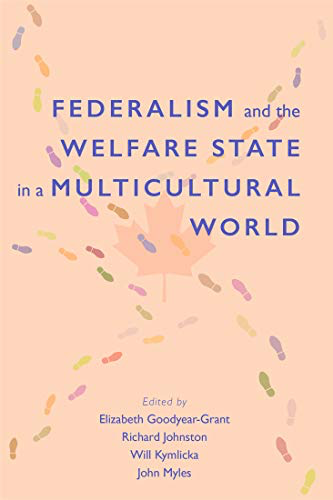
This raises a whole host of under-explored questions about how citizens (both majority and minority group citizens) conceptualize the ethics of membership, and how they evaluate compliance with it. As I said, I think this will ultimately require us to rethink our theories of both nationalism and multiculturalism. Nationalism and multiculturalism carry with them sets of normative expectations about what we owe each other, but I think we’ve often misidentified these normative expectations in a way that has made if difficult to see how a multicultural nationalism is possible.
3:16: You’ve also worked recently on animal rights, in collaboration with your partner and co-author Sue Donaldson. An interesting feature of your work is that you place it within the domain of political rather than ethics, where it usually sits. So what has political philosophy to offer animal rights over the ethicist approach?
WK: The first big wave of animal ethics was focused on the issue of the moral status of animals. In Peter Singer’s words, the task was to “expand the moral circle”, to get animals included in the circle of moral consideration. In my view, there’s been considerable progress on that front, at least at the level of public attitudes. Most people agree that animals are owed moral consideration, and that what happens to them matters morally. However, animals remain entirely excluded from the political circle. We live in democracies which are based on “the rule of the people”, and so political inclusion requires being considered a member of “the people” in whose name the state governs. Yet no country in the world includes animals as members of “the people” or the “the demos”, and this political exclusion is the root of their ongoing exploitation and oppression. There is no mechanism for their interests to shape public policy, because they are not members of the demos.
Political status, not moral status, is the core of human exceptionalism and human supremacism today. If we want to remedy this, we need to step outside of moral philosophy, and grapple with fundamental questions in political philosophy, and more specifically, in democratic theory. Who is a member of the demos? Who has the right to govern whom? What makes the exercise of political power legitimate? These are the sorts of questions that underpin the “political theory of animal rights” that Sue and I have been developing.
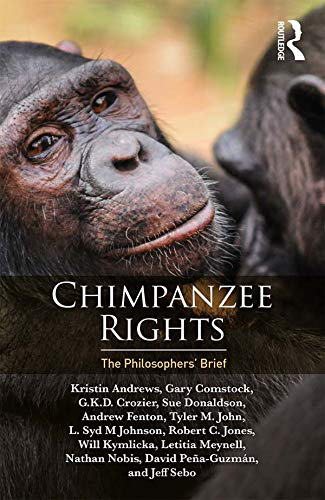
3:16: So what kinds of information and analysis of human-animal relations are needed to make a political approach viable?
WK: In order to decide what kinds of relations with animals are legitimate, we first need to know what kinds of relationships (if any!) animals want to have with us. Animals are not a caste group that exists to serve us: they have their own lives to lead, and so we need to find out whether or how they want to relate to humans and to human societies. And as soon as we ask that question, it should be clear that different groups of animals are likely to have very different preferences. Some domesticated animals seem to enjoy intimate, sociable relations with humans, while other wild animals flee as far as possible from us. These differences do not matter for an animal’s moral status – animals’ preferences about proximity to humans do not affect whether they are owed moral consideration. But they do matter profoundly for politics, and in particular for whether or how they are included in “the demos”, and in which demos.
Those domesticated animals who can flourish in a shared society with humans should be seen as our co-members – that is, as members of the people or the demos in whose name a given state governs. But those wild animals who avoid human contact should be seen as forming their own separate political communities, over which we have no right to govern. Put another way, in relation to some domesticated animals, the task is to include them in domestic politics, as our co-citizens, whereas in relation to some truly wild animals, we should be thinking more in terms of international relations or international diplomacy; they are other nations with whom we need to share the planet. (This idea that we should think of our relations with wild animals along the lines of interspecies diplomacy is a long-standing feature of many Indigenous societies in North America: they think of themselves as having treaty relations with communities of wild animals). This is obviously highly schematic, and there will inevitably be lots of grey areas and hard cases. But the basic point remains: a political theory of animal rights requires us to think in terms of political communities, not just moral status. All sentient animals have moral status, but we need to think about which of these animals want to be members of a shared demos with humans, or which should instead be seen as members of their own demos.
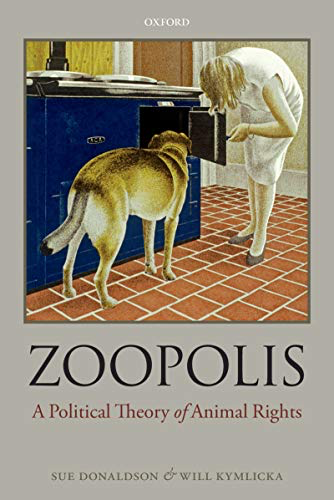
3:16: What’s wrong with cosmozoopolis alternatives to your approach of a zoopolis that minimizes the moral significance of boundaries and membership? Why do you think we need to takes membership in bounded communities seriously?
WK: The cosmozoopolis alternative says that we don’t need to distinguish members from non-members – either amongst humans or amongst animals. We just ask whose interests are affected by any decision, and if they are, we count them. Whether we think a cosmozoopolis in relation to animals is attractive is likely to depend in part on what we think about cosmopolis in relation to humans: that is, do we think bounded membership-based political communities are good for humans? I think there are good reasons why humans organize ourselves into membership-based polities: bounding the demos facilitates trust, solidarity, and political agency. But I think the case for a bounded demos is even stronger in relation to animals. A cosmozoopolis may seem like the most inclusive option, guaranteeing that all animals’ interests will be counted. But in reality, it fails to protect the distinctive interests of either wild animals or domesticated animals.
Consider wild animals: a cosmozoopolis denies that wild animals form their own sovereign communities, and this means that wild animals’ claims to their habitats are always vulnerable to being outvoted by the needs of humans. If we base politics on the all-affected interests principle, it ensures that wild animals are counted in the aggregation process, but it equally entails that the interests of humans in encroaching on wild animal habitat gets counted. Wild animals are not accorded any territorial rights that pre-empt the voracious appetite of humans for more and more land. Wild animals need to continually prove that their interests outweigh the competing interests of humans, and that is a recipe for justifying the continued dispossession of wild animals in favour of humans. Now think about domesticated animals: a cosmozoopolis recognizes them as sentient beings who have affected interests, but it denies that we have any special obligations to them arising from the fact that we have historically taken them from the wild and brought them into our society to live and work alongside us.
Through domestication and selective breeding, we have created a distinctive kind of dependency amongst domesticated animals and I think this generates special political responsibilities. We have a special duty to care for needs and vulnerabilities that we ourselves created. Moreover, the wealth of human societies has been built through the blood and labour of domesticated animals, and so they have a birthright in our societies. They have been pressganged into our schemes of social cooperation, and have a right to share in its products. To treat domesticated animals as simply “affected interests”, with no prior claim to our care or our social wealth, is to ignore and evade our special responsibilities to those we have taken out of the wild and brought into society. Put another way, a cosmozoopolis asserts rights over wild animals that we do not in fact have, and denies responsibilities to domesticated animals that do in fact have.
3:16: Fewer than 4% of animals with vertebrates are wild. Doesn’t this make the idea of their having sovereignty problematic – in such a situation any wilderness left will have to be looked after by humans and so be like zoos – big zoos I agree – and also make your focus on wild animals less pressing than the sovereignty of the 70% or so of vertebrates that are domestic?
WK: I guess my question is about whether it’s too late to give political sovereignty to most animals – they’re already in captivity so a political discussion is rather like working out the political rights of slaves. Some discussions of the “Anthropocene” make it sound like humans have already encroached and settled on all the habitat of wild animals. But that is just not true: there are still many areas of relative wilderness in which animals can live freely. Of course they are affected by human decisions and actions, such as climate change. But we can’t use the fact that we are impacting wild animals as a pretext for then taking their land, or managing their lives. Sue and I have criticized the idea that our only duty to wild animals is to “let them be” – there is more to interspecies justice than simply non-interference - but “letting them be” is often indeed a central part of what justice requires (if it is understood as ceasing to invade and colonize their territories). The fact that vegetation, temperatures, weather, and pH levels are changing due to climate change will affect the lives of wild animals – sometimes for good, usually for bad – but that is not the same as “captivity” or “slavery”. Wild animals can still be free to lead their own lives, as individuals and communities, even under adverse conditions, and we have no right to pre-empt that. We do of course bear enormous responsibility for trying to limit and mitigate climate impacts so that they can indeed get on with leading their lives.
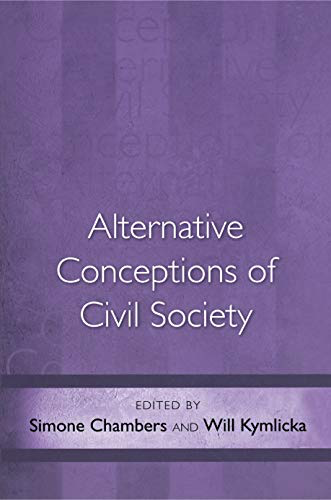
3:16: You’ve taken the idea of inclusive citizenship to mobilize thinking about the political rights of people with cognitive disabilities and children, as well as animals. What are the arguments you find work for inclusive citizenship?
WK: I said earlier that the linchpin of human exceptionalism is political status, not moral status. But of course not all humans are included in the political circle. The various justifications given to exclude animals from the demos – for example, that they lack reason or language or moral self-regulation – have also been invoked to exclude many human groups at different times, including children, people with cognitive disabilities, women, the poor, and various racialized groups. So even if we set aside the case of animals, we already have a problem with our inherited idea of citizenship: it was defined by and for a relatively narrow class of (white, male, property-owning) so-called `competent’ adults who have claimed the natural right to govern everyone else. Charles Mills and Carole Pateman famously called this a “domination contract”: competent white male adults form a social contract in which they agree to treat each other as political equals, but at the very same moment they accord themselves the right to rule over groups like women, children, blacks, Indigenous peoples, people with disabilities - and animals.
So we need to rethink citizenship from the ground up, on a more truly democratic basis. We need to think about what kinds of political agency and communication, within what kinds of political spaces and practices, are meaningful to all of those who are part of our shared society. There is excellent work being done in this question in the fields of disability studies and children’s rights, exploring what kinds of citizenship practices are meaningful to people across the full spectrum of cognitive and communicative capacities. Sue and I have argued that many of the insights from this literature are applicable to the case of domesticated animals (and vice-versa): they all push in the direction of a more social, embodied, relational and inclusive conception of politics.
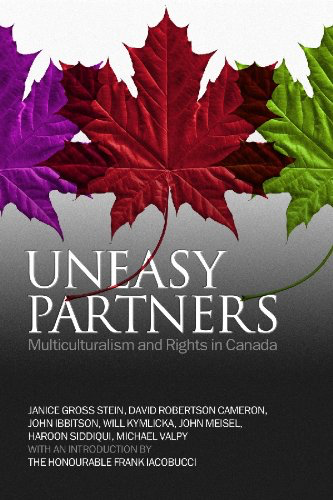
3:16: An interesting current situation that involves clashing political rights is that between animal rights and Aboriginal rights in Canada. Can you say something about this issue and what it helps illustrate about rights and your notion of inclusive democracy?
WK: This is a very complicated topic, but it’s important to not focus exclusively on the “clash” between animal rights and Indigenous rights. In reality, there are many areas of overlap and cooperation. Animals have been oppressed in Western culture because they have been seen as (i) property; (ii) as lacking sentience and agency; and (iii) as subject to unilateral human dominion. A central task of animal rights theorists and activists is to challenge these deep-seated assumptions of Western society and culture. But Indigenous peoples also reject these assumptions: Indigenous peoples in North America have never viewed animals as property, have never denied that they are sentient and competent agents, and have never asserted unilateral rights of dominion over them. On the contrary, as I noted earlier, many Indigenous peoples view animals as competent self-governing communities with whom humans need to form consent-based treaty relationships. Many recent animal rights theorists have been informed and inspired by the writings of Indigenous peoples on human-animal relations.
So on many if not most issues, advocates for animal rights and Indigenous rights are likely to line up on the same side, against the instrumentalist, unminded and property-based view of animals that defines Western culture and Western capitalism. Of course, there are areas of dispute, particularly around certain traditional hunting and fishing practices. As I said, this is a complex, multi-layered dispute, partly legal, partly political, partly scientific, partly cultural. In our article on this topic, Sue and I distinguish nine discrete debates, each of which needs to be discussed on its own terms. I would just say here that our own view rests on what we call “the circumstances of justice”. Throughout most of history, humans were not in the circumstances of justice with animals: we were not able to survive without harming animals. But if and when we are in the circumstances of justice – if we are able to survive without harming others – we have a duty to try to do so. Many Indigenous writers like Margaret Robinson and Craig Womack affirm something similar: necessity plays an important role in their peoples’ accounts of their treaties with animals, and there are ongoing debates within Indigenous communities about what this means in today’s circumstances.
As a member of settler society, my work is focused on cleaning up our own house, and fighting the instrumentalization of animals within Western law. Self-determining Indigenous peoples are already well ahead of settler societies on this front, and I have no doubt they will continue to think deeply and carefully about what good treaty relations with animal nations require, and continue to offer ideas that non-Indigenous cultures can benefit from.
3:16: We may be living through a sixth extinction. Does this make a difference to animal rights?
WK: The extinction crisis should give us a sense of moral urgency, and should put in question our staggering sense of species entitlement, or what Ted Benton once called our “quite fantastic sense of species narcissism”. But I think it’s a mistake to focus primarily or exclusively on species that are on the brink of extinction. Even conservationists are recognizing this mistake. As Michelle Nijhuis argues, enormous resources have been directed to protecting endangered populations who are often at the point of no return, while ignoring the still abundant populations of animals in relatively stable habitats who, unless we act now, will become the endangered species of tomorrow. As Freya Mathews puts it, conservation has for too long operated on an “ecology of the minimal”, i.e. aiming for minimally viable populations when it comes to animals, while humans grant themselves unchecked rights to expand in terms of numbers and territory. This sort of minimalist/extinction-oriented conservation is not a corrective to the sense of human entitlement, but a manifestation of it. We need to reject the ecology of the minimal, and to think about the rights of abundant animals as well as endangered animals.
3:16: And finally for the readers at 3:16 can you recommend five books that will help take us further into your philosophical world?
WK: It’s so difficult to just pick five books, but here’s what comes initially to mind:
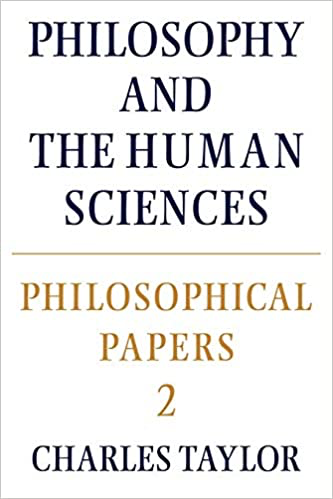
Charles Taylor, Philosophy and the Human Sciences: (Cambridge University Press, 1985). If Western philosophy is a series of footnotes to Plato, then much of Canadian philosophy is a series of footnotes to Taylor. In any event, most of my work is directly or indirectly a response to Taylor’s corpus. This 1985 collection of essays contains many of his most important essays in political philosophy, and in particular his influential critiques of liberalism for lacking an adequate account of agency, culture, collective identity, and political solidarity. I share the broad outlines of Taylor’s view of humans as deeply social and cultural animals, and so agree with claims about the need for a richer account of the social and cultural context of individual agency and democratic politics (though I disagree with him about the human exceptionalism of this account). One of my aims has been to show that such a richer account does not require abandoning key tenets of liberal egalitarian justice.
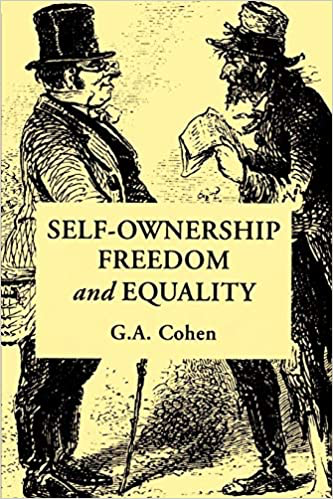
G.A. Cohen, Self-ownership, freedom, and equality. Cambridge University Press, 1995. Jerry Cohen was my doctoral supervisor at Oxford, and I’ve always admired the way he combined a profound moral commitment to egalitarian justice with an equally profound commitment to intellectual rigour and honesty, subjecting his own beliefs to the most minute scrutiny for signs of evasions or inconsistencies (or just plain “bullshit”, as he put it). In my view, his critiques of Nozick’s libertarian account of self-ownership and of Rawls’s defense of incentives are paradigms of how philosophy can in fact illuminate our thinking about justice, taking what may seem like an intuitively plausible view and showing that it dissolves under careful analysis.

Carole Pateman, The Sexual Contract (Polity Press, 1988). One of my very first academic publications was a review of Pateman’s book, which was not only a profound introduction to the feminist critique of received ideas of citizenship, but was also my entry into the broader literature on what we now call “domination contracts”. When political philosophers talked blithely about a social contract amongst “free and equal citizens”, Pateman insisted we look more carefully at who exactly is being included or excluded, and this provocation has generated waves of important scholarship on the “racial contract” (Mills), the “capacity contract” (Clifford Simplican), “the settler contract” (Nichols), and we can now add the species contract. All of these have shaped my ideas about the need for a more inclusive conception of democracy and citizenship.
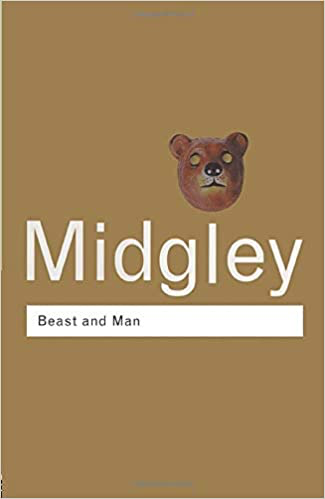
Mary Midgley, Beast and Man (Cornell University Press, 1978). I only really took up the animal question as a topic for philosophical analysis in the 2000s, partly in response to Nussbaum’s book (see below). But in retrospect, I was primed for this shift because of my close engagement with Midgley’s book in my 1984 honours BA thesis, which drew on Midgley to critique sociobiology. Midgley not only had a healthy and bracing scepticism about philosophers’ obsession with human exceptionalism, but also had a lively sense of the rich diversity of human-animal relations, including the reality of what she called “mixed communities”, in which humans and animals had a genuinely shared social life. The works of Singer and Regan are better-known amongst animal rights theorists, but neither showed much interest in the possibility of interspecies sociability, or in the idea of humans and animals co-authoring a shared social world. I think Midgley planted a seed that took several years to really take hold in my work.
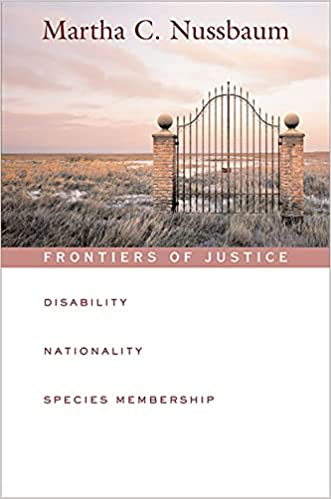
Martha Nussbaum, Frontiers of Justice: Disability, nationality, species membership (Harvard University Press, 2006). This was really the book that inspired Sue and me to take up the animal question. Nussbaum’s book was key in taking animals out of the silo of moral philosophy and into the core of political philosophy, and exploring why indeed it is a central “frontier of justice”. But while Nussbaum offers a rich theory of justice, her account of citizenship in that book is quite thin, and I think this leads her to understate the political significance of the differences between wild and domesticated animals. If Nussbaum focused on the “frontiers of justice”, Sue and I wanted to trace the “frontiers of citizenship”, bringing the animal question into conversation with democratic theory, as well as theories of justice.

ABOUT THE INTERVIEWER
Richard Marshall is biding his time.
Buy his second book here or his first book here to keep him biding!
End Time series: the themes
Huw Price's Flickering Shadows series.
Steven DeLay's Finding meaning series
NEW: Joseph Mitterer's The Beyond of Philosophy serialised